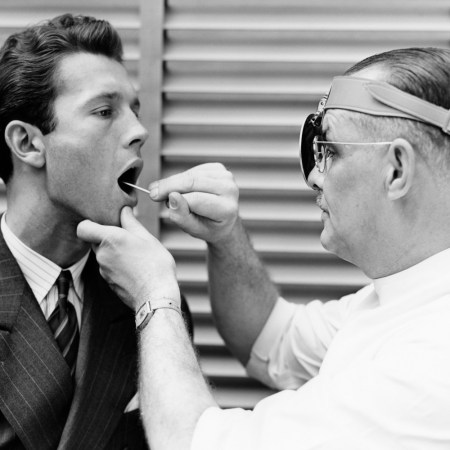Years ago, we asked a fitness expert named Michael Matthews, author of Muscle for Life, for his take on the recommended “normal” resting heart rate range for an adult American male, which is 60 to 100 beats per minute. He was unimpressed.
“Considering that the average person is overweight, obese and sedentary, it’s probably not best to look at ‘normal’ as ‘ideal’ in this case,” Matthews replied. “Instead, a healthy range to shoot for would be closer to 50 to 80 beats per minute, and if you’re in very good shape, your resting heart rate might dip as low as 40 to 50 beats per minute.”
What’s the benefit in lowering your resting heart rate, anyway? Well, it’s a premier indication of improved cardiovascular health, increased aerobic capacity and efficient heart function. Elite athletes like Lance Armstrong have claimed everyday resting heart rate ranges below 35 bpm, while marathoners like Eliud Kipchoge eventually develop phenomenally large left ventricles, on account of that compartment pumping so much blood throughout the body on a consistent basis.
Basically: you make it hard for the heart some of the time, so it can beat as relaxed as possible most of the time. And it’s possible for you to join the ranks outside our country’s not-so-normal range….without training like an elite athlete. Here are some steps to lower your resting heart rate under 60 bpm.
Is a Cold Shower Ever as Effective as a Cold Plunge?
A breakdown of cold therapy, from the bathroom to the beachStrategies To Lower Your Heart Rate
- Cardio, cardio, cardio: This one is essential. Simply put, running, cycling, or swimming on a regular basis is going to improve your cardiovascular fitness and lower your heart rate. We recommend aiming for 150 minutes a week. To optimize your time out there, up your Zone 2 training. We’re fans of Palantir CEO, Alex Karp‘s cardio strategy; taking after cross-country skiing champions from Norway, he gets outside and moves for five hours a week…as slow as humanly possible.
- A little HIIT: The heart still needs to be pushed to its limit once in a while, though. (This helps develop another key cardiovascular biometric: heart rate variability, or HRV.) Along with all the cardio, you’ll want to mix in HIIT workouts, which alternate between short bursts of high-intensity exercise and periods of rest or low-intensity activity. Research has shown that HIIT can help lower heart range. Just don’t make it your primary form of exercise.
- Take a breather: Stress does no favors for your heart rate; over time, it can really take a toll on your cardiovascular health. Incorporate stress management practices, such as mindfulness meditation, yoga, or deep breathing exercises, to help lower your resting heart rate. Oh, and as always, adequate sleep is paramount and will definitely regulate your heart rate. Aim for 7-9 hours of quality sleep each night. Try this trick for staying sleep through the night.
Keeping tabs
How will you know if your resting heart rate is headed in the right direction?
To accurately monitor your heart rate, get yourself a heart rate monitor, fitness tracker or smartwatch. Ideally, you’ll want to measure your resting heart rate first thing in the morning, before engaging in any physical activity. That’ll yield the most accurate results. But it’s okay to check in periodically throughout the day. I have an Apple Watch, and check it when I’m reading or watching TV on the couch. Also kind of fun: trying a deep breathing technique to lower your heart rate as much as possible. They actually have competitions centered around this in South Korea.
Don’t stress
If you can get below 60, or 50, or even 40 beats per minute, that’s spectacular. If that’s proving a struggle, don’t stress; it’s important to remember that individual factors, such as age, genetics and medical conditions, can influence one’s heart rate.
For some folks, aiming for a resting heart rate below 60 BPM may actually not be realistic or safe. Always talk with a healthcare professional before embarking on a plan to significantly lower your heart rate. They’ll help you determine a healthy target based on your unique circumstances. Tour de France shape awaits — for your heart, anyway.
Whether you’re looking to get into shape, or just get out of a funk, The Charge has got you covered. Sign up for our new wellness newsletter today.

























